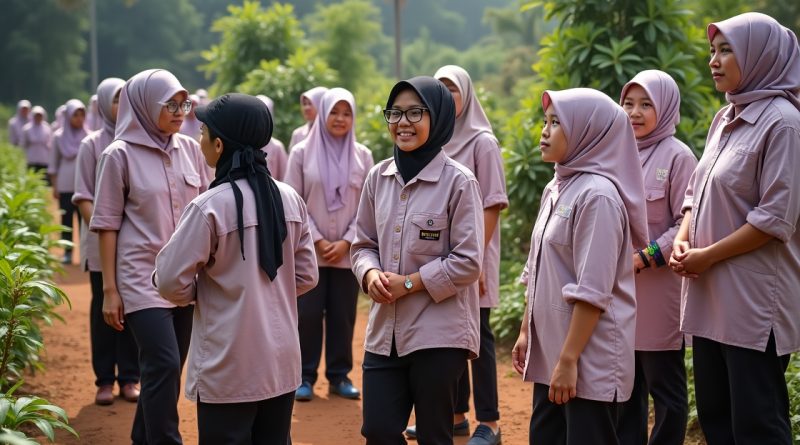Student Contributions Through Community Service (KKN) for Village Development
By Dr. Abdul Wadud Nafis, LC., MEI
Community Service Program (KKN) is a concrete embodiment of the Tri Dharma of Higher Education, particularly the aspect of community service. KKN is not merely an annual ceremonial activity but a collaborative movement between students, academics, and local communities to offer solutions to various village issues.
A. The Strategic Role of KKN in Village Development
1. Transfer of Knowledge and Technology
Students bring the latest knowledge from universities, including modern agriculture, appropriate technology, entrepreneurship, waste management, public health, and village digitalization.
2. Enhancing Human Resource Capacity
KKN contributes to improving the quality of human resources in villages through training, MSME mentoring, and strengthening of community institutions (youth organizations, village-owned enterprises, etc.).
3. Mapping Local Potentials
Students play a role in identifying village potentials—natural resources, culture, and tourism—that have not yet been optimally developed.
4. Community Empowerment
Through participatory approaches, KKN encourages communities to become self-reliant and capable of solving their own problems.
5. Sustainable Development
KKN can serve as a foundation for the initiation of sustainable programs such as digital villages, healthy villages, tourism villages, and educational villages.
B. Real Impacts of KKN
Many villages have successfully developed local flagship products through student assistance.
Previously digitally isolated villages have now become technologically literate.
Community participation in development has increased, inspired by student activities.
C. Challenges and Solutions
Challenges: Lack of synergy between universities and village policymakers.
Solutions: Integration of KKN programs into the Village Medium-Term Development Plan (RPJMDes) and collaboration with relevant agencies to ensure sustainability.
Conclusion
KKN is not just a college assignment—it is the intellectual battleground for young minds to respond to the challenges of our time, starting from the margins: the village. Through KKN, students learn, serve, and contribute. And from villages, the hope for a strong and self-reliant Indonesia begins.
REFERENCES
1. Ministry of Education and Culture. (2020). Thematic Community Service Program Implementation Guide. Jakarta: Directorate of Learning and Student Affairs, Directorate General of Higher Education.
2. Sugiyono. (2016). Educational Research Methods: Quantitative, Qualitative, and R&D Approaches. Bandung: Alfabeta.
3. Republic of Indonesia Law No. 6 of 2014 concerning Villages.
4. Directorate General of Higher Education. (2011). General Guidelines for University Community Service Programs in Indonesia. Jakarta: Directorate General of Higher Education.
5. Winarno, S. (2017). Community Empowerment Through Thematic Student KKN. Yogyakarta: Deepublish.
6. Isbandi Rukminto Adi. (2013). Community Intervention and Development: As an Effort for Community Empowerment. Jakarta: Rajawali Press.
7. Tilaar, H.A.R. (2004). Reforming National Education. Jakarta: Rineka Cipta.
8. Mardikanto, T., & Soebiato, P. (2012). Community Empowerment from a Public Policy Perspective. Bandung: Alfabeta.
9. Sutoro Eko. (2015). Building Villages, Building Indonesia. Yogyakarta: Insist Press.
10. Wahyuni, S. (2020). “The Role of Student KKN in Village Development Based on Local Potentials”. Journal of Community Empowerment, 6(1), 45–58.
11. Leonardo AI. (2025). Illustration: Student Contributions Through Community Service (KKN) for Village Development [AI-generated image]. https://app.leonardo.ai


